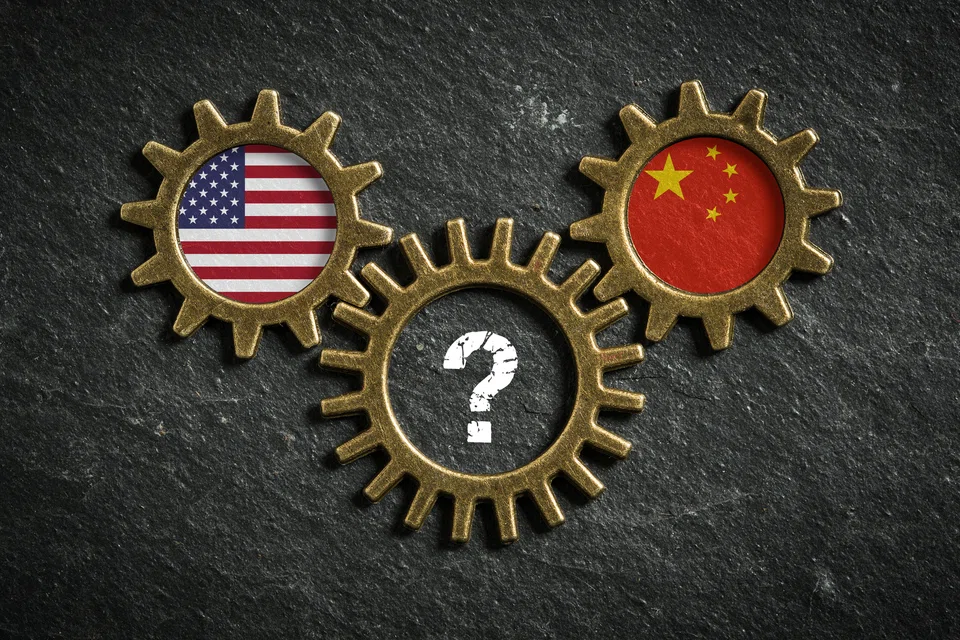Part II: The exceptionality of US geopolitics and the current predicament of China-US relations
Pang Ruizhi, a young Chinese PhD candidate pursuing further studies at Boston University, shares his views on how China can conduct itself on the world stage as a rising power in a two-part article. He suggests that China should be humble, but should also strike hard when its opponent initiates a fight.

Part II: China's global reality and how to address it
China-US relations grew increasingly tense after President Obama took office. The root problem was that strategically, the US believed in preventing the emergence of a dominant state in East Asia, and the rise of China posed a serious challenge.
No sooner had the younger George Bush's administration assumed office than the US labelled China as a "strategic competitor". China had yet to display any outstanding power and influence at that point, it was a thermonuclear state with close economic and trade ties with the US, and was highly dependent on the US economy.
At that time, the Bush administration decided on the counter-USSR approach, since China was far from intimidating in terms of economy, finance, or technology.
Looking back, there were two templates of possible action. The first was the counter-Russian approach, which would translate to implementing geopolitical containment, befriending and benefacting China's neighbours to weaken its influence. The second option was the counter-Japanese approach of the 1980s to 1990s, which meant a direct suppression of Chinese economic and financial clout, restricting its high-tech sector development to weaken its national strength.
At that time, the Bush administration decided on the counter-USSR approach, since China was far from intimidating in terms of economy, finance, or technology. Even after the US became mired in the Iraq War, its government continued to prop up the countries around China, upgrade the US-Japan alliance, improve relations with India, Indonesia, and Vietnam, and support Japan in its counteractive diamond formation against China.
By the time the Obama administration set forth its "strategic pivot to Asia,'' it was basically carrying forward the previous administration's strategy against China, boosting the sense of an American presence in the Asia-Pacific region. Many Asian countries took the opportunity to initiate territorial disputes with the PRC over parts of the East China Sea and the South China Sea. Chinese relations with Japan, Vietnam, and the Philippines quickly took a downturn. Meanwhile, the US worked to strengthen links amongst its allies and security partners, and sought to transform the hub-and-spoke alliance structure in East Asia into a fan-shaped configuration. The whole idea was to join forces to deplete Chinese influence in East Asia.
To claw away at China's economic and financial clout, on the other hand, was the utmost priority in the eyes of Trump's team, and was in fact where the chief talents of this team lay.
When Trump took office, circumstances had changed. First of all, despite the worsened security situation around China, the PRC had maintained its strategic composure, focusing its energy on development. Its economic and financial strength had come a long way from 20 years earlier, with great success in industrial upgrading and the development of high-tech sectors. In addition, the Trump administration was lacking in security experts, being instead overrun by economy and trade pundits. An analogue of the counter-USSR approach, which would entail building a regional network to contain China, was neither the prime concern of these advisors nor what they excelled at. To claw away at China's economic and financial clout, on the other hand, was the utmost priority in the eyes of Trump's team, and was in fact where the chief talents of this team lay. Thus, with Trump, America's strategic plan for clamping down on China gradually shifted from the counter-Russian approach to the counter-Japanese approach.
In fact, the US had waged trade wars against Japan multiple times since the late 1950s, involving industries such as textiles, colour TVs, and steel. These economic engagements rose to a new climax during the 1980s. The US not only targeted the Japanese automobile and semiconductor industries, but also initiated a financial war against Japan.
Here again are the tariff hikes and attempts at getting the RMB to rise in value. However, America's strategy towards China is substantially different from that towards Japan.
In 1985, Japan was forced into signing the Plaza Accord, causing the Japanese yen to appreciate. In the years 1989 and 1994, the United States twice invoked Special Clause 301 to initiate a trade war on Japan, ostensibly to reduce trade deficits. Ultimately nothing of note was achieved for the trade imbalance, instead the appreciation of the yen triggered a downturn pressure of the Japanese economy. Japan tried to improve the situation by means of an expansionary currency and fiscal policy, which only led to a real estate bubble. It was with the bursting of this bubble that the Japanese economy lapsed into long-term stagnation. While this disaster was not directly brought about by the US, the American policy of containment was nevertheless quite instrumental in its development. The final outcome was the fulfilment of America's strategic objectives-Japan was weakened as a country, held back from becoming East Asia's dominant economy, yet remained fundamentally undamaged. The old order for conducting US-Japan trade and bilateral relations prevailed.
Looking back on history, America's moves in the ongoing economic war against China feels like déjà vu. Here again are the tariff hikes and attempts at getting the RMB to rise in value. However, America's strategy towards China is substantially different from that towards Japan. In the last two decades of the 20th century, the Japanese automobile, semiconductor, and other industries were developing rapidly, constituting serious competition to their American counterparts. American industries in some areas shrivelled as a result. The trade war against Japan not only reduced trade deficits, but also elevated the competitive advantage of relevant industries vis-à-vis their Japanese counterparts. This would reap multiple benefits.
In the case of China, however, the processing and export industry is its leading industry. Waging a trade war against China can still lead to reduced trade deficits, but not without corresponding losses to the American corporations that rely on product processing and assembly in China. Capitals have their own laws, so a trade war will not help the re-industrialisation of the US.
Furthermore, America's trade/financial war against Japan had the strong support of European countries, which is not true of the current conflict. Even though the US, Europe, and Japan share common interests in urging China to better protect intellectual property rights, open up its domestic market, and address the issues of technology transfer, the Trump administration fails to leverage on these interests.
Instead, it remains hell-bent on raising tariffs on Chinese goods, while unreasonably accusing the PRC of being a currency manipulator, all of which are actions that Europe and Japan do not approve of. To make matters worse, the US even raises tariffs on some of the exports from its allies, while compelling countries like Germany and Japan to pay more for the stationing of American troops. America's traditional allies and partners are thus further alienated.

It is fair to say that Trump's policy towards China only bears a superficial resemblance to the counter-Japanese approach of the 1980s and 1990s. In reality, it is a crude rehash, not only lacking in strategic foresight, but also drastically diminishing America's international reputation and credibility.
Due to the fundamental rationale behind US's China policy, the PRC cannot avoid challenges from America, no matter its foreign policy.
In spite of all this, the negative impact of Trump's policy on China should not be underestimated. The trade war forces China to take countermeasures, yet the options at the PRC's disposal are very limited. China can apply tariff hikes on American agricultural produce, but the consequence will be higher prices of food (including meat) within China. American sanctions on Chinese technology corporations like ZTE and Huawei, on the other hand, may hinder the progress of Chinese companies in the industry chains. Indeed, this part of US manoeuvres is perhaps where the strategic perceptiveness of the Trump administration is at its sharpest. More gravely, Trump's high-pressure policy towards China could undermine the confidence of foreign capital investment in China, causing such capital to withdraw and thereby leave the country in dire straits.
The American strategy towards the PRC could still undergo significant changes in the future, but it is unlikely to deviate from the rut of counteracting and weakening China's clout in East Asia. This is determined by the United States' geopolitical environment, its definition of its national interests, and its long-time strategic tradition. However, in view of mutual interest in the domain of trade and economy, as well as the PRC's national power, the US is unlikely to attempt military confrontation. The most likely option will still be the counter-USSR approach, the counter-Japanese approach, or a combination of both.

Due to the fundamental rationale behind US's China policy, the PRC cannot avoid challenges from America, no matter its foreign policy. The Asian colossus is in many ways at a disadvantage. The most important thing for China is to maintain a humble, cautious foreign policy, maintain its strategic composure, commit to deepening its own politico-economic reforms, increase the sustainability of its political and economic developments, and not be diverted from its course by the American strategy.
Hence, China must also strike hard when there is an instance of another party picking a fight.
The PRC's stance of humility and caution, coupled with its low-profile policy, will help to prevent unnecessary friction with the US, giving American politicians a way to back down with dignity and alleviating the public pressure on them to contain and counteract the progress of China.
The diplomatic issue that China must address most urgently is the improvement of relations with its neighbours. To this end, territorial disputes should be resolved as quickly as possible; some choices have to be made between making territorial claims and maintaining regional peace and influence. The point is to foster better relations to the greatest possible extent with as many of its neighbours as possible. China should step up the professionalisation of its diplomatic teams and reduce unnecessary diplomatic friction.
Nevertheless, China must not be always passively tolerant and yielding. The PRC has not fought any war for four decades. This could give rise to a misconception that China would never dare to strike back, no matter how much it is taunted, and therefore creating the impression that other countries can continue to blackmail the country and constantly demand more. Hence, China must also strike hard when there is an instance of another party picking a fight.
China's retaliation strategy should be flexible and diversified. This should include economic or financial sanctions, without excluding the option of launching precise, swift, small-scale, non-expansionist military strikes that come with a pullout strategy. Such military operations can more clearly draw a red line for Chinese national interests, so as to prevent miscalculations (or even outright conflicts) on a larger scale. This is the requirement of a modern coercion policy that would utilise violence as diplomacy. The ancient Chinese statesman Zichan states: "Only the virtuous can make the people submit through leniency. The next best approach is harshness. As fire is intensely destructive, people fear it as they look at it, and as a result there are few deaths caused by fire. Water, however, appears weak, so people frolic in it with little respect, and thus there are many deaths caused by water. To practise leniency is therefore the more difficult path."
A similar logic applies to how a great power should conduct its foreign relations.



![[Photos] Fact versus fiction: The portrayal of WWII anti-Japanese martyrs in Taiwan](https://cassette.sphdigital.com.sg/image/thinkchina/3494f8bd481870f7c65b881fd21a3fd733f573f23232376e39c532a2c7593cbc)

